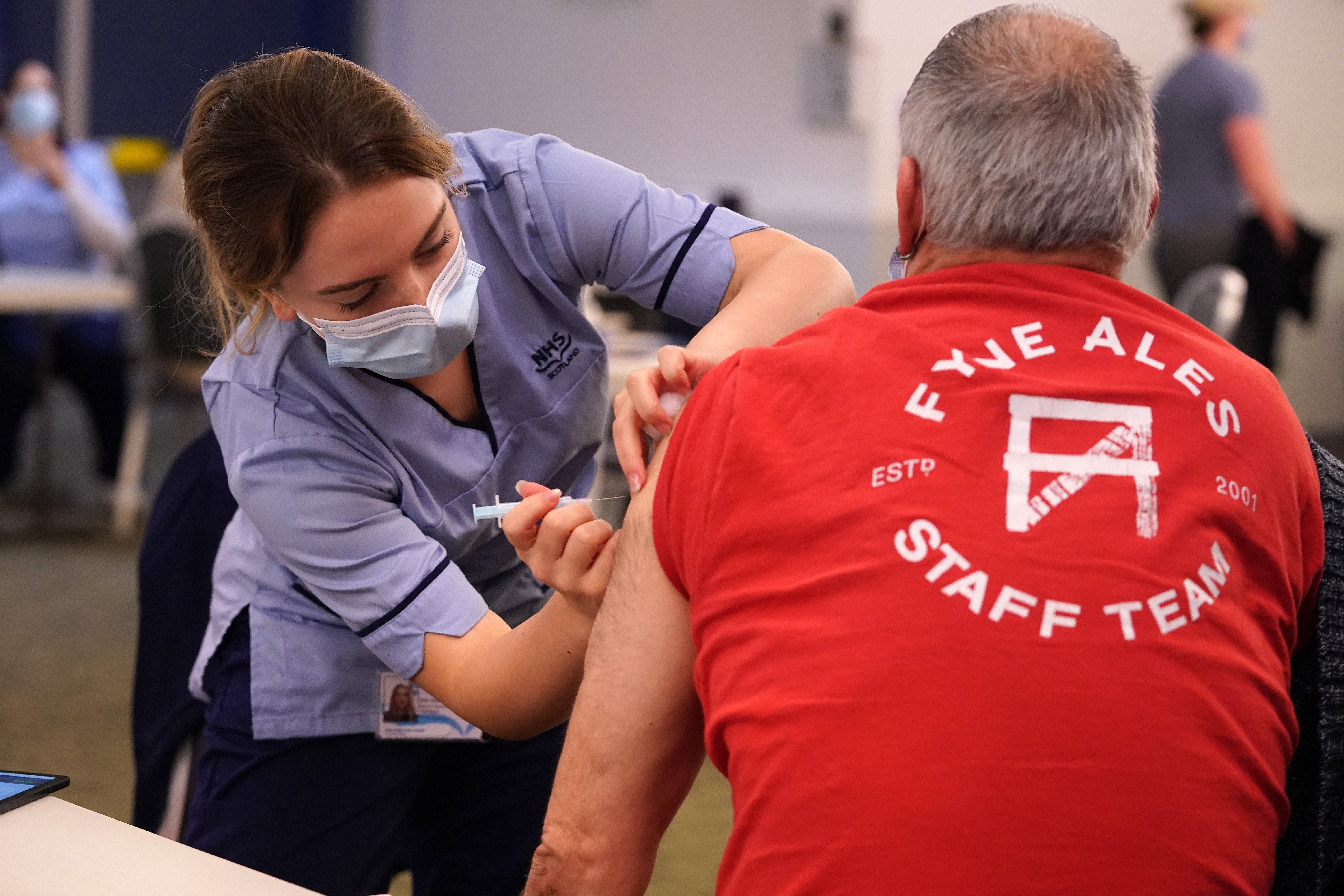Call to prioritise booster jab rollout as NHS faces staffing crisis
Figures from the UK Health Security Agency show that the vaccine booster is 90% effective against admission to hospital from the Omicron variant.

The Government has been advised to prioritise the rollout of the first booster jab amid a crisis in healthcare staffing.
Figures from the UK Health Security Agency show that the vaccine booster is 90% effective against admission to hospital from the Omicron variant for the over-65s after three months.
Meanwhile, protection for those with two doses dropped to about 70% after three months and to 50% after six months.
Taking this data into account, the Joint Committee on Vaccination and Immunisation has advised the Government against giving a second booster dose, or fourth jab, to care home residents and those aged over 80.
It added that priority should continue to be given to rolling out the first booster dose, and that unvaccinated people should come forward for their first two doses as soon as possible.
It comes as the armed forces have stepped in to fill a staffing crisis in the NHS caused by the rapid spread of the Omicron variant.
NHS England data shows 39,142 NHS staff at hospital trusts in England were absent for Covid-19 reasons on January 2, up 59% on the previous week (24,632) and more than three times the number at the start of December (12,508).
According to the Health Service Journal (HSJ), staff absences across the entire NHS, including mental health trusts and other areas, for any reason including Covid-19, may be as high as 120,000.
To help fill the gap, there were around 1,800 military personnel committed to assist with 15 open Covid-19 Military Aid to Civilian Authority (MACA) requests, as of Friday.
In total, there are around 9,300 armed forces available on standby.
Over 740 personnel are supporting NHS England with the rollout of the booster.
In Scotland, 121 personnel are supporting the Scottish Government, with a further 100 made available last month.
The NHS staffing crisis led to a system-wide major incident being declared in Northamptonshire by health, public and emergency service leaders on Friday.
Northamptonshire Local Resilience Forum, which is made up of NHS organisations, local authorities, Northamptonshire Fire and Rescue Service and Northamptonshire Police, issued the alert due to “rising demand on services and staffing levels”.
Chairman of the forum, Chief Fire Officer Darren Dovey, said: “Declaring this incident is a necessary step to make sure we are able to share resources where necessary which is increasingly important as more staff need to self-isolate.”
As well as a staffing crisis, hospitals are also facing the highest number of admissions from coronavirus since last February.
A total of 18,454 people were in hospital in the UK with Covid-19 as of January 6, Government figures show.
This is up 40% week on week and is the highest number since February 18 2021.
During the second wave of coronavirus, the number peaked at 39,254 on January 18 2021.
Bookmark popover
Removed from bookmarks